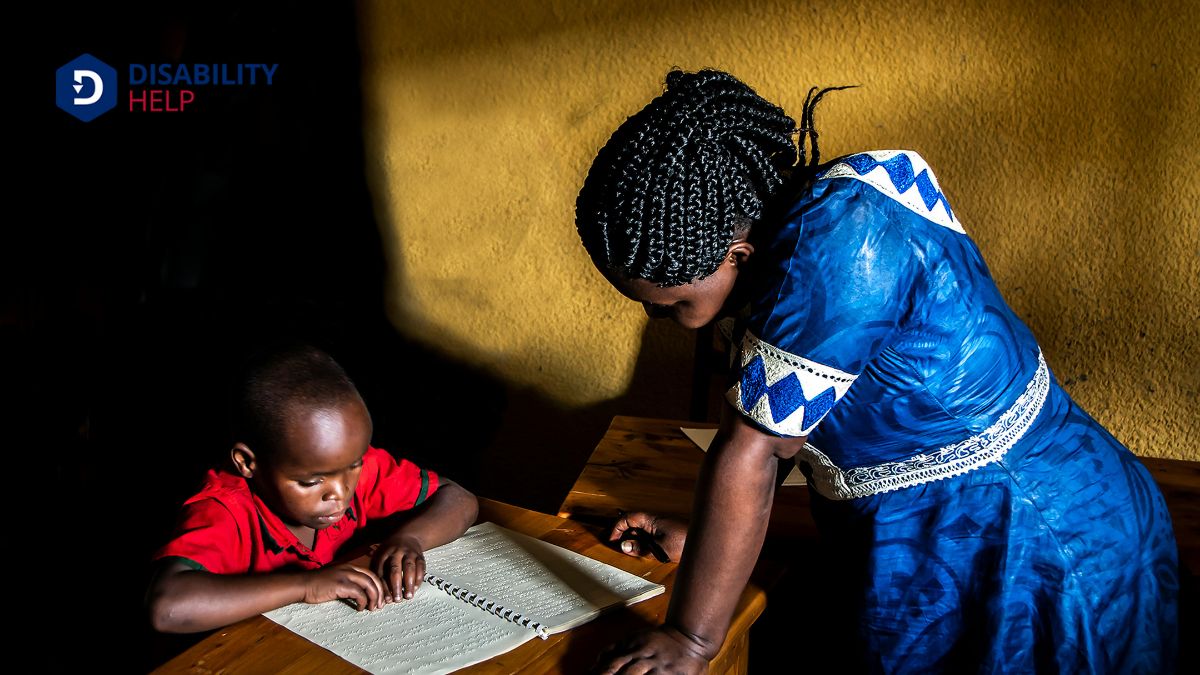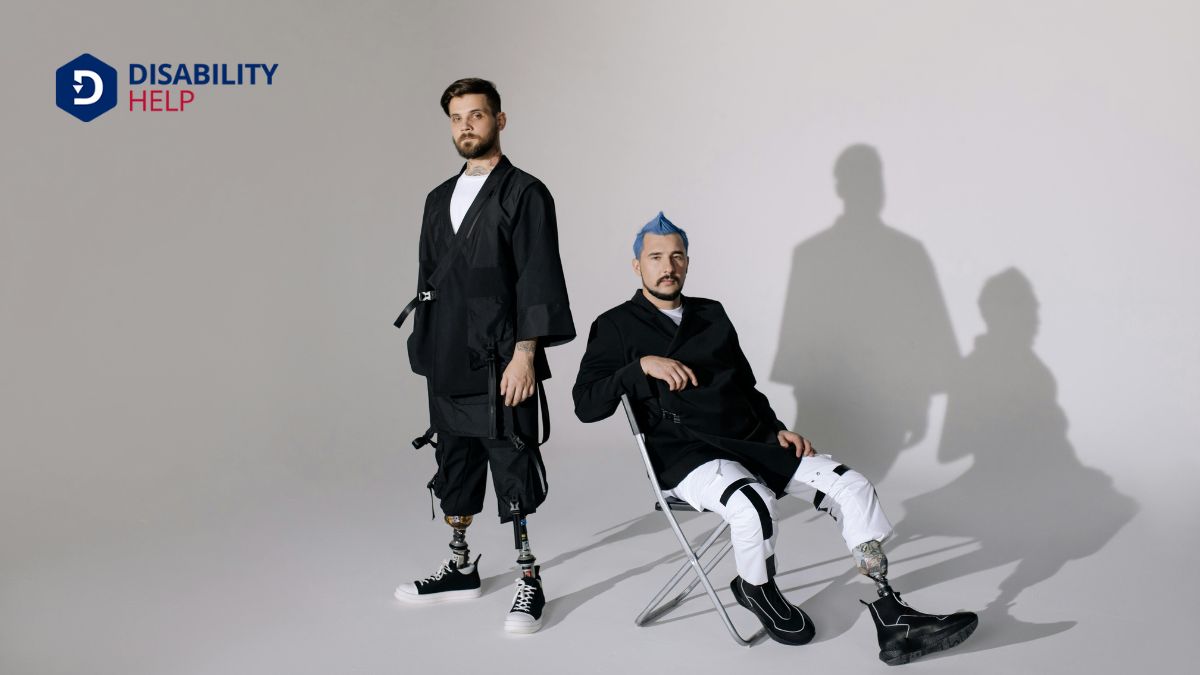We understand how important it is for disabled individuals to have access to quality mental health resources. Specialized programs like MHW-IDD offer free training for caregivers, and NADD provides continuing education for those working with individuals with intellectual and developmental disabilities (IDD). Integrated treatment plans help address co-occurring disorders, while trauma-informed care fosters resiliency and recovery. Accessible therapy options include teletherapy and sensory-friendly environments. Resources like support groups, peer counselingProfessional guidance to help individuals cope with emotional, mental, or social challenges, particu..., and crisis services guarantee thorough care. Stick with us to explore these resources in detail.
Key Takeaways
- Trauma resources for individuals with developmental disabilities are provided by NCTSN.
- Teletherapy and online counseling for flexible mental health support.
- Integrated treatment plans for co-occurring IDD and psychiatric disorders.
- Specialized training programs for caregivers and professionals by NADD.
- Accessible therapy options include sensory-friendly environments and non-traditional therapies like art therapyA therapeutic practice using creative expression through art to improve mental, emotional, and physi....
Wellness and Recovery
Recognizing behavioral health needs is fundamental for mental wellness, especially for disabled individuals who often face unique challenges. We must understand that their journey towards wellness and recovery requires tailored approaches. For many, trauma can be a significant barrier, but utilizing trauma-informed care can greatly enhance resiliency and recovery.
One essential mental health resource is the MHW-IDD free training course. It's designed specifically for those with intellectual and developmental disabilities (IDD) facing behavioral health issues. This course equips caregivers and professionals with the skills needed to support wellness and recovery effectively.
Additionally, the National Association for the Dually Diagnosed (NADD) offers continuing education opportunities. These programs focus on individuals with IDD, ensuring that they receive the specialized care necessary for their mental health. By participating in these educational opportunities, we can better understand and address the unique needs of disabled individuals.
Specialized Training Programs

Specialized training programs are essential for equipping caregivers and professionals with the skills needed to support individuals with Intellectual and Developmental Disabilities (IDD) facing mental health challenges. One resource that stands out is the MHW-IDD, a free training course tailored specifically for this purpose. By focusing on both IDD and behavioral health needs, it helps address complex mental health needs effectively.
Continuing education is pivotal, and NADD offers programs designed to meet these unique requirements. Their specialized training programs foster a deeper understanding of both mental health and developmental disability, ensuring that professionals stay updated and competent.
For those working with children with IDD who've experienced trauma, the Road to Recovery training guide is invaluable. This resource provides specialized tools and strategies to support young individuals on their healing journeys.
Similarly, the Trauma-Informed Toolkit for Providers in the Field of IDD offers critical insights into trauma and interventions tailored for this population.
Additionally, the National Association for State Developmental Disability Directors Services provides extensive resources on mental health treatment modalities specific to individuals with IDD. These specialized training programs are indispensable for enhancing the quality of care and support provided to those with developmental disabilities.
General Mental Health Resources
When it comes to general mental health resources for disabled individuals, there are several invaluable tools and guides readily available. For those living with developmental disabilities or an intellectual disabilityA disability characterized by significant limitations in both intellectual functioning and adaptive ..., the National Child Traumatic Stress Network (NCTSN) offers resources specifically addressing trauma. Their materials are designed to help families and children navigate the complexities of trauma while considering the unique challenges of IDD.
We can also look to the Diagnostic and Statistical Manual of Mental Disorders, Version 5 (DSM-5), which provides updated, detailed information on mental disorders, including those affecting individuals with disabilities. This manual is essential for understanding and diagnosing mental health conditions accurately.
The Trauma-Informed Care Basics Training by the South Southwest Mental Health Technology Transfer Center Network is another excellent resource. It gives us vital knowledge on how to care for individuals with disabilities in a trauma-informed manner.
Additionally, the HHSC Crisis Services Guide offers detailed information on state-funded crisis services tailored specifically for individuals with disabilities, ensuring we can connect people to resources quickly in times of need.
Lastly, the Trauma-Informed Toolkit for Providers in the Field of Intellectual & Developmental Disabilities is a valuable resource. It delivers practical information on addressing trauma and implementing effective interventions for those with IDD.
Co-Occurring Disorders
Many individuals with intellectual and developmental disabilities (IDD) face the challenge of co-occurring disorders, which greatly impact their mental health. Up to 35% of people with IDD have a psychiatric disorder. Common co-occurring disorders include major depressive disorder and anxiety disorders, affecting their overall well-being. These conditions can reduce the quality of life for individuals with IDD, making mental health treatment important.
People with IDD experience trauma at higher rates than the general population. This trauma can lead to more severe post-traumatic stress symptoms, emphasizing the significance of trauma-informed care. Addressing co-occurring disorders requires a thorough approach that takes into account the unique needs of this population.
Here are some key points to keep in mind:
- Trauma-Informed Care: Understanding the impact of trauma on individuals with IDD is essential for effective mental health treatment.
- Integrated Treatment Plans: Combining treatments for both IDD and psychiatric disorders can improve overall outcomes.
- Support Systems: Building a strong network of caregivers, therapists, and support groups helps in managing co-occurring disorders.
Behavioral Health Disorders
Understanding co-occurring conditions highlights the intricacy of mental health care for individuals with IDD. People with intellectual or developmental disabilities encounter behavioral health disorders just like anyone else. Conditions like bipolar disorderA mental health condition characterized by extreme mood swings, including manic and depressive episo..., impulse control disorders, and personality disorders are common and can greatly impact daily functioning.
Recognizing that behavior serves as a form of communication is pivotal. Often, behavioral health issues in individuals with IDD may be misattributed solely to their disability, leading to undiagnosed conditions. This misattribution can result in crucial psychiatric disorders going untreated, causing further complications.
As care providers, we must grasp that individuals with IDD may have co-occurring psychiatric disorders necessitating specialized care and support. Tailoring our approach to meet their specific needs is essential. By doing so, we not only address the behavioral health disorder but also enhance overall well-being.
It's important to collaborate closely with care providers proficient in both intellectual or developmental disabilities and behavioral health. This dual expertise guarantees thorough and efficient treatment plans. With the right support, individuals with IDD can lead fulfilling lives despite the intricacies of managing co-occurring conditions.
Accessibility and Support Services

Let's explore how inclusive mental health servicesProfessional services that support individuals in managing mental health conditions, such as therapy... and accessible therapy options can make a difference for disabled individuals.
By working with organizations like the American Association of People with Disabilities and the ARC, we can guarantee that everyone has access to the support they need.
It's essential that mental health resources are designed to be accessible and accommodating for all.
Inclusive Mental Health Services
Inclusive mental health services for disabled individuals don't just happen by chance; they result from intentional efforts to guarantee accessibilityThe design of products, devices, services, or environments to be usable by people with disabilities.... and customized support. It's important that we grasp how these services prioritize the unique needs of those with disabilities. Health care needs to be inclusive, offering resources that cater to individuals with intellectual and developmental disabilities.
To make mental health services truly reachable, we need to take into account the following:
- Online Screenings and Telehealth Options: These resources provide a convenient and reachable way for disabled individuals to seek mental health support without the barriers of physical travel.
- Tailored AccommodationsModifications or adjustments in healthcare settings to support patients with disabilities.: Services such as sign language interpreters or communication aids ensure that every individual can effectively communicate and receive the care they need.
- Collaborations with AdvocacyThe act of arguing in favor of, supporting, or defending the rights and interests of individuals or ... Organizations: Partnering with disability advocacyEfforts and services aimed at protecting and promoting the rights and interests of individuals with ... groups can notably improve awareness and access to mental health resources, ensuring that support is both thorough and inclusive.
Support services like case managementA service that helps individuals with disabilities access and coordinate necessary services, includi..., peer supportA system where individuals with disabilities provide support and share experiences to help each othe..., and therapy also play a pivotal role in enhancing mental wellness for disabled individuals. By providing customized support, we can address the specific needs of those with intellectual and developmental disabilities, ensuring that mental health care is both reachable and effective.
Accessible Therapy Options
To further enhance mental health services for disabled individuals, we must explore accessible therapy options that meet diverse needs. Teletherapy, online counseling, and mobile apps offer flexible and convenient mental health support. These options make it easier for individuals with mobility issues or those living in remote areas to access therapy.
Many therapy practices now provide accommodations to guarantee inclusivity. Wheelchair accessibility, sign language interpreters, and sensory-friendly environments are just a few examples of how therapy can be tailored to meet the needs of disabled individuals. It's significant that these accommodations are widely available to create a supportive environment for everyone.
For people with IDD, disability-specific therapy services are essential. These specialized services, designed for individuals with intellectual and developmental disabilities, offer tailored support and a deeper understanding of their unique challenges. Incorporating non-traditional therapies like animal-assisted therapyA therapeutic intervention involving animals to help individuals with disabilities improve physical,..., art therapy, and music therapyThe use of music to address physical, emotional, cognitive, and social needs of individuals with dis... can also be highly beneficial. These approaches provide alternative ways to express emotions and manage mental health challenges effectively.
Support services such as peer counseling, support groups, and hotlines are also valuable resources. They provide immediate assistance and a sense of community, guaranteeing that disabled individuals never have to face their mental health challenges alone.
Frequently Asked Questions
What Is the Most Approved Mental Illness for Disability?
Major depressive disorder is the most approved mental illness for disability benefitsFinancial assistance provided to individuals who are unable to work due to a disability, such as Soc.... The Social Security Administration recognizes it as a disabling condition, and meeting specific criteria with documented evidence can qualify us for the necessary support.
What Are 3 Reliable Resources for Help With Mental and Emotional Disorders?
We recommend the National Association for State Developmental Disability Directors Services, the Trauma-Informed Toolkit for Providers, and NADD's continuing education opportunities. These resources offer valuable guidance for addressing mental and emotional disorders in individuals with disabilities.
How Much Disability Can You Get for Depression and Anxiety?
We can get disability benefits for depressionA mental health condition marked by persistent feelings of sadness and loss of interest. and anxiety based on how much they affect our ability to work. The Social Security Administration assesses severity and daily impact and requires medical documentation to determine the amount.
What Resources Would You Advocate for Individuals and Families Impacted by Mental Illness?
We'd advocate for using the NADD's continuing education, The Road to Recovery guide, and the Trauma-Informed Toolkit. For immediate help, the HHSC Crisis Services Guide is invaluable. These resources support families and individuals facing mental illness effectively.
Conclusion
In our journey to support mental health for disabled individuals, we've explored wellness and recovery, specialized training programs, and general mental health resources. We've also touched on co-occurring and behavioral health disorders, emphasizing the importance of accessibility and support services. By leveraging these resources, we can foster a more inclusive and supportive environment. Let's continue advocating for all-encompassing mental health care that truly meets the needs of everyone. Together, we can make a difference.





